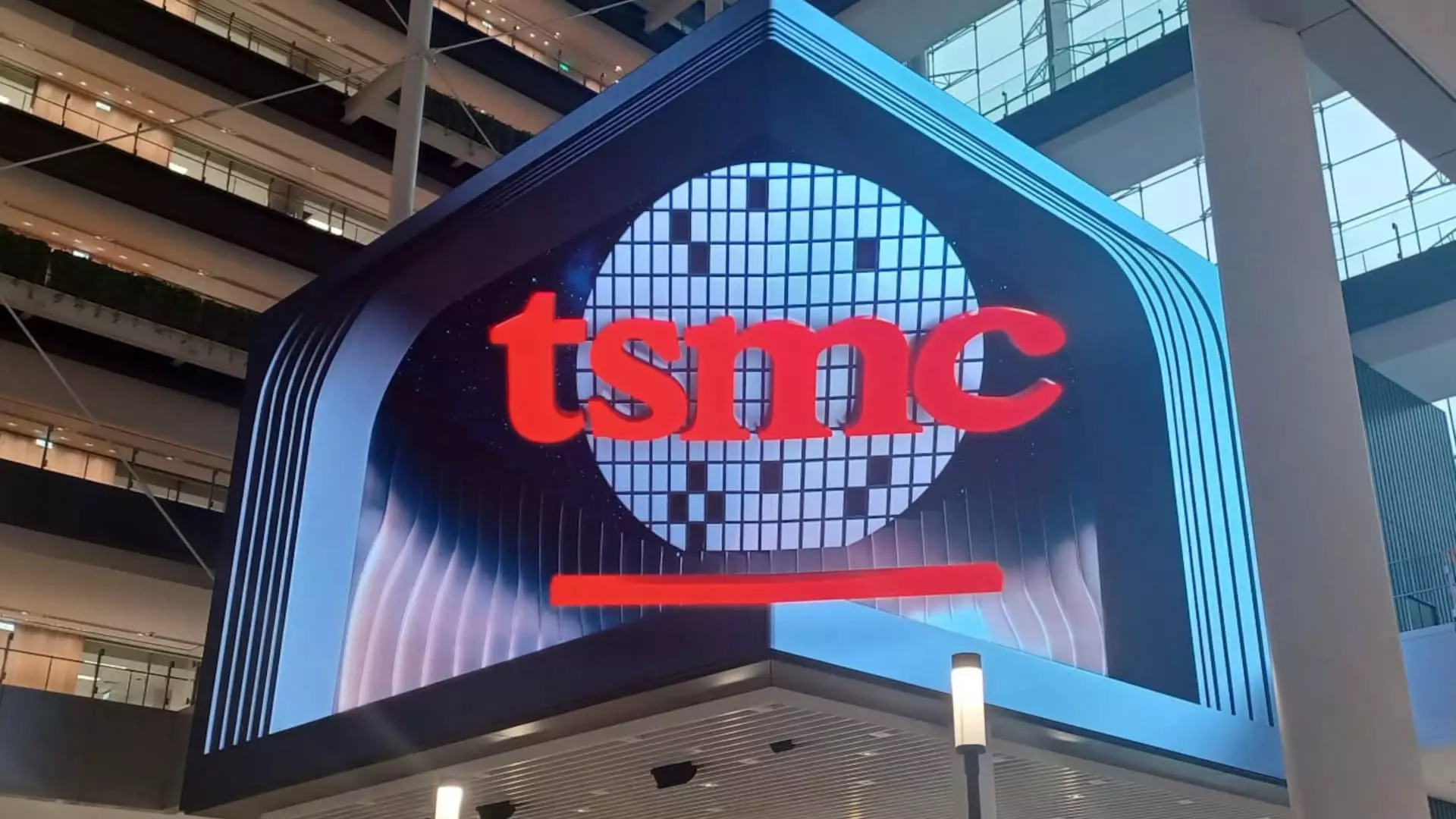Taiwan Semiconductor Manufacturing Company (TSMC) has once again set a remarkable precedent in the semiconductor industry, demonstrating resilience and innovation in the face of a rapidly evolving technological landscape. With its fourth-quarter results revealing revenues and profits that not only surpassed expectations but also marked significant year-on-year growth, TSMC has solidified its status as a titan in the chip manufacturing domain.
In the fourth quarter, TSMC reported a net revenue of NT$868.46 billion (approximately $26.36 billion), exceeding the market consensus of NT$850.08 billion. Furthermore, the company’s net income reached NT$374.68 billion, also higher than the anticipated NT$366.61 billion. These figures illustrate a compelling narrative of growth, with profits leaping by 57% compared to the previous year, while revenue soared by an impressive 38.8%. The firm’s projections for the quarter hinted at revenues between $26.1 billion and $26.9 billion, indicating not only strong performance but also effective forecasting.
The primary driver behind TSMC’s exceptional results was the surge in demand for advanced semiconductors, particularly those tailored for artificial intelligence (AI) applications. The high-performance computing (HPC) sector, which encompasses both AI and 5G technologies, was particularly influential, contributing 53% to the company’s revenue. This segment alone saw a 19% increase from the previous quarter, underscoring the growing trend towards AI-centric technologies that leverage TSMC’s advanced manufacturing capabilities.
The pronounced demand for AI chips has placed TSMC in a strategically advantageous position. Analysts, including Brady Wang from Counterpoint Research, noted that the demand was not only robust in Q4 but is expected to persist through 2024. Wang pointed out that this surge is complemented by increased sales of advanced chips used in Apple’s latest iPhone 16 model, further consolidating TSMC’s role as a pivotal supplier for major tech giants.
Wendell Huang, TSMC’s Chief Financial Officer, provided insights during the earnings call, stating that sales from AI accelerator products are projected to make up “close to a mid-teens percentage” of total revenue in 2024. Huang expressed optimism, forecasting that even after an anticipated tripling in revenue from AI accelerators, this category would double again by 2025. This forward-looking stance illustrates TSMC’s commitment to innovation and meeting evolving market demands in an increasingly AI-driven world.
However, despite these promising financial indicators and projections, TSMC must navigate a volatile geopolitical environment. The advent of U.S. restrictions on the export of advanced semiconductor technologies to China poses significant challenges, particularly as the company has cultivated partnerships in that region. Furthermore, with the impending trade policies under President-elect Donald Trump, uncertainties loom regarding tariffs and relationships with markets critical to TSMC’s operations.
C.C. Wei, TSMC’s Chairman and CEO, indicated that the company prefers to maintain a low profile, hinting at a cautious approach to the evolving political landscape. The company has refrained from participating in events like Trump’s inauguration, signaling that they intend to prioritize stability and strategic continuity over high-profile engagements.
Investor sentiment for TSMC seems bullish, with shares rising by 81% during 2024. Following the release of the strong Q4 results, TSMC’s stocks gained an additional 3.75%, reflecting confidence in the company’s ability to capitalize on burgeoning demand within the semiconductor sector. Similar upward trends have been observed among European semiconductor companies, indicating a broader industry recovery and growing investment in semiconductor technologies.
TSMC’s fourth-quarter results not only underscore a successful financial year but also encapsulate the dynamic interplay of innovation, market demand, and geopolitical challenges within the semiconductor industry. As the firm positions itself at the forefront of AI technology, its ability to navigate political and trade-related uncertainties will be crucial in sustaining its growth trajectory in the years to come.

